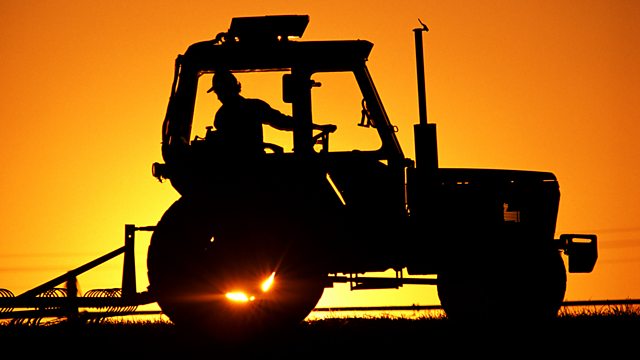
German government meat ban, US animal welfare standards, New broccoli research
Charlotte Smith speaks to the Βι¶ΉΤΌΕΔ's Berlin correspondent, Damien McGuinness, about why a meat-free diet is becoming a controversial issue in the German elections.
Why a meat-free diet is becoming a controversial issue in the German elections. Charlotte Smith speaks to the Βι¶ΉΤΌΕΔ's Berlin correspondent, Damien McGuinness. He explains that earlier this week, Barbara Henricks, Germany's environment minister, announced that the government would be instituting a ban on meat at official functions held by the Ministry of Environment, citing the environmental burden of meat production as the reason for the ban. However, not everyone's happy.
Currently the UK is importing more than 50% of the fruit and veg we eat. So, the discovery by scientists of a new strain of broccoli which doesn't need a cold winter to produce the 'florets' we eat, could make broccoli growing in the UK all-year round. That would reduce imports and make us more self-sufficient. Anna Hill reports from the John Innes Centre to meet Dr Judith Irwin, the scientist who discovered this - quite by chance!
Defra's Secretary of State, Andrea Leadsom, has assured UK farmers and consumers that imports of food from the united states post-Brexit will not lead to a reduction in food quality or welfare standards in Britain. We've heard garish descriptions of US beef reared with growth hormones and their chicken meat routinely washed in chlorine, so as we've spent the week looking at animal welfare standards here - we thought we'd find out what the standards are there. Dena Jones is Director of the Animal Welfare Institute in the States, which campaigns on this issue. She explains that there are virtually no national legal standards in the US for animals raised for food.
Also, while many of Britain's farmers are this morning dealing with the effects of Storm Doris, one in Cumbria is taking a big step towards making his business more resilient, after it was badly hit by Storm Desmond, almost 15 months ago. Raisgill Hall near Tebay was damaged by river flooding that swept through the lambing-shed, and thousands of tons of mud that slid down a hillside behind, and into the farmyard. The farmer, Steve Dunning, has just built a new lambing shed, about 300 metres away across the valley AND 20 metres higher up - well out of reach of any future flood waters. Βι¶ΉΤΌΕΔ Radio Cumbria's John Bowness went to meet him as Steve prepared to move his flock into their new home.
Presented by Charlotte Smith and produced by Mark Smalley.
Last on
Broadcast
- Fri 24 Feb 2017 05:45Βι¶ΉΤΌΕΔ Radio 4
Podcast
-
![]()
Farming Today
The latest news about food, farming and the countryside

